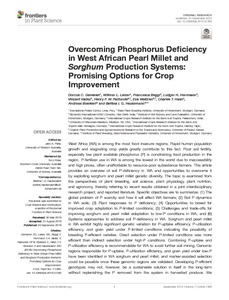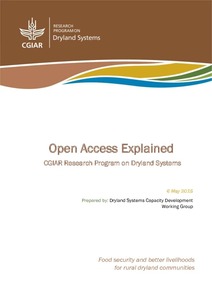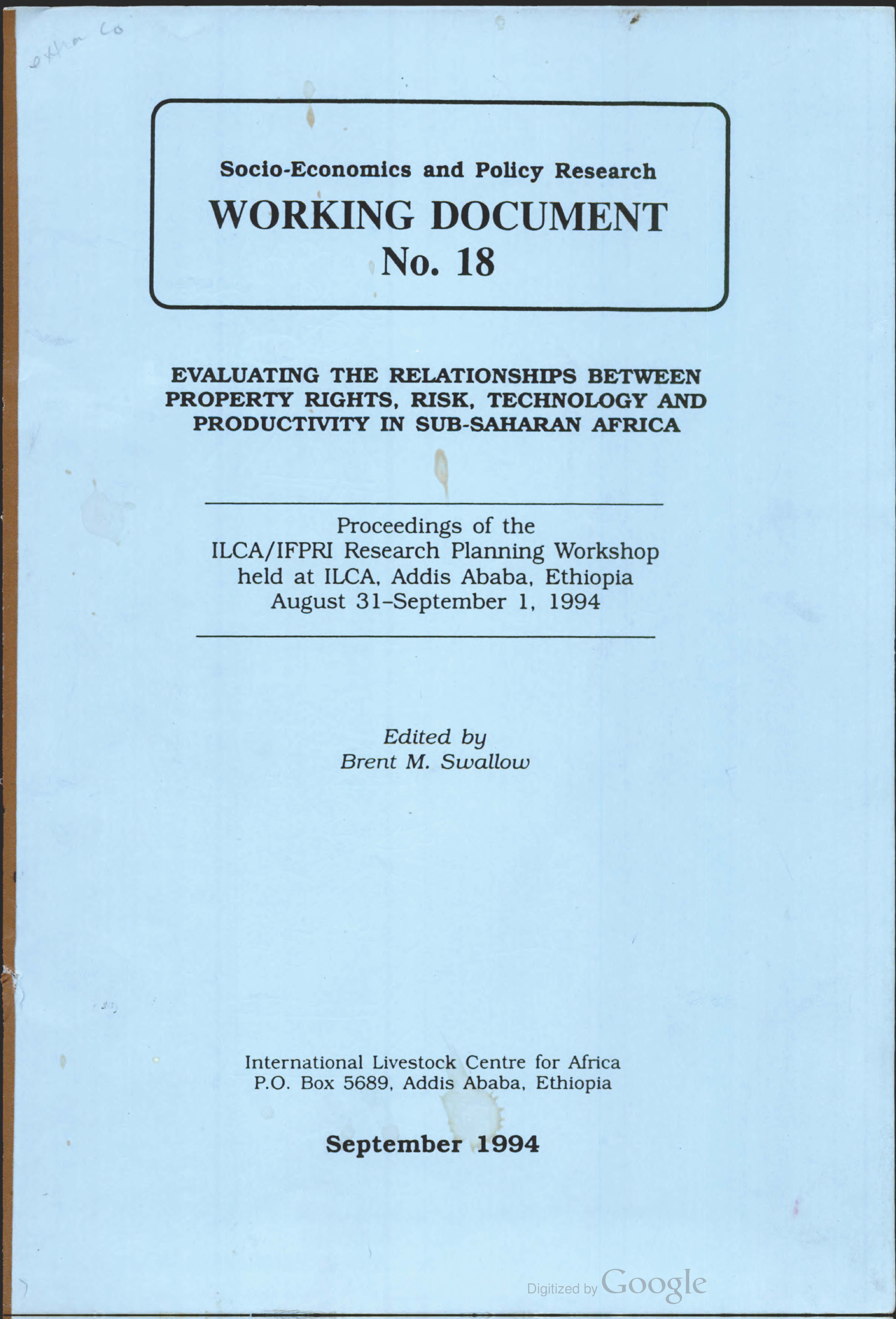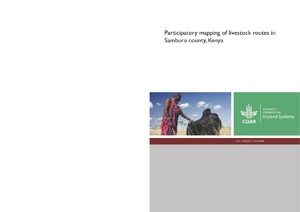Overcoming phosphorus deficiency in West African pearl millet and sorghum production systems: promising options for crop improvement
West Africa (WA) is among the most food insecure regions. Rapid human population growth and stagnating crop yields greatly contribute to this fact. Poor soil fertility, especially low plant available phosphorus (P) is constraining food production in the region. P-fertilizer use in WA is among the lowest in the world due to inaccessibility and high prices, often unaffordable to resource-poor subsistence farmers. This article provides an overview of soil P-deficiency in WA and opportunities to overcome it by exploiting sorghum and pearl millet genetic diversity.
Overview of ILCA's research on property rights
This paper reviews the studies of property institutions that have been undertaken by researchers affiliated with the International Livestock Centre for Africa (ILCA) since 1980. Particular attention is given to the systems studies and an ongoing study of the impacts of trypanosomiasis control on property institutions. Past and current studies by other workshop participants are mentioned but not reviewed in any detail. The majority of the completed studies have been concerned with two fundamental questions: (1) How do property institutions affect the use and management of resources?
Operationalizing inclusive innovation: Lessons from innovation platforms in livestock value chains in India and Mozambique
Various authors have identified the potential relevance of innovation system approaches for inclusive innovation, i.e. the means by which new goods and services are developed for and by the poor. However, it is still a question how best to operationalize this. Innovation platforms are a way of operationalizing interaction and learning among actors, and enable reshaping of relations and institutions.
Operationalizing inclusive innovation: Lessons from innovation platforms in livestock value chains in India and Mozambique
Various authors have identified the potential relevance of innovation system approaches for inclusive innovation, that is, the means by which new goods and services are developed for and by the poor. However, it is still a question how best to operationalize this. Innovation platforms (IPs) represent an example of putting an inclusive innovation system approach into practice by bringing different types of stakeholders together to address issues of mutual concern and interest with a specific focus on the marginalized poor.
Participatory analysis of vulnerability to drought in three agro-pastoral communities in the West African Sahel
Drought is one of the major climatic hazards impacting on the various sectors including crop and livestock in the West African Sahel. Pastoral and agro-pastoral communities in the region are regularly affected by drought, with vulnerability differing with gender, age, wealth status (access to cropland and livestock endowment), geographic location, social networks, and previous exposure to drought. Effective interventions require regular monitoring of vulnerability to drought, for which various quantitative and qualitative approaches exist.
Participatory Community Development Plans: ICARDA Experience
Ostrich-like strategies in Sahelian sands?: land and water grabbing in the Office du Niger, Mali.
In recent years, large-scale agricultural investment projects have increased in sub-Saharan Africa as a result of the growing appetites of local and international investors for land resources. Research has so far mainly focused on land issues, but the water implications of these land deals are starting to surface. Taking the Office du Niger (ON), in Mali, as a case study, it is shown that while around 100,000 ha is currently being cultivated, mostly by smallholders, a total of 600,000 ha of land has been allocated in the past ten years to investors in large-scale farming.









